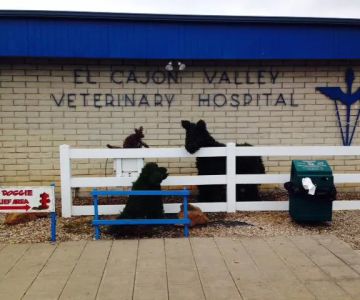What Education is Needed to Be a Veterinarian? A Step-by-Step Guide
- Understanding the Path to Veterinary School
- Degrees and Certifications Required to Become a Veterinarian
- Personal Story: My Journey to Becoming a Veterinarian
- The Importance of Continuing Education in Veterinary Care
1. Understanding the Path to Veterinary School
Becoming a veterinarian is a long, rewarding journey that requires years of education and hands-on experience. When I first started thinking about pursuing a career in veterinary medicine, I didn’t fully realize how much training was required to become a veterinarian. Over time, I learned that the path is challenging but incredibly fulfilling, as it prepares you to care for animals in a meaningful way.
The road to becoming a veterinarian begins with completing an undergraduate degree, usually in a field related to biology, animal science, or chemistry. This is essential because veterinary schools require applicants to have a solid foundation in the sciences. I remember working hard on my biology and chemistry classes during college, knowing that they would be the stepping stones to my dream job.
After completing an undergraduate degree, aspiring veterinarians must then apply to veterinary school, where they undergo four years of intensive training. Veterinary school is known for being competitive, and gaining admission can be challenging. However, the hard work pays off as students gain in-depth knowledge about animal anatomy, diseases, surgeries, and treatment options. It’s during these years that students gain practical experience working with animals in supervised settings, which helps them build the hands-on skills necessary for their future careers.
2. Degrees and Certifications Required to Become a Veterinarian
To be officially recognized as a veterinarian, you need to complete several key educational steps, including earning a Doctor of Veterinary Medicine (DVM) degree. Here's a breakdown of what’s typically required:
2.1 Undergraduate Degree
The first step is earning a bachelor's degree, typically in a science-related field. I chose animal science for my undergraduate studies because it aligned closely with my interests in animal health. While other degrees in biology, chemistry, or zoology are also common, the goal is to complete coursework in subjects like biology, chemistry, and physics, which are essential for veterinary school.
2.2 Veterinary School (DVM Degree)
After completing your undergraduate degree, the next step is veterinary school, where you'll work toward your Doctor of Veterinary Medicine (DVM) degree. This is the most crucial part of the journey to becoming a veterinarian. During these four years, you’ll study various subjects, from clinical diagnostics to surgery, pharmacology, and animal behavior. You’ll also gain valuable practical experience working with animals under the supervision of veterinary professionals.
2.3 Licensure and Certification
Once you’ve earned your DVM degree, you’ll need to pass the North American Veterinary Licensing Examination (NAVLE) to become licensed to practice as a veterinarian in the U.S. In addition to the NAVLE, some states may require additional exams or specific certifications. For example, I needed to pass both a state exam and the NAVLE before I could practice in my state. Certification is essential to ensure that you meet the standards required for the health and safety of animals and their owners.
3. Personal Story: My Journey to Becoming a Veterinarian
Reflecting on my journey, I can recall how daunting the prospect of veterinary school initially seemed. I wasn’t always sure I had the academic ability to meet the demands of veterinary education. However, with determination and the guidance of supportive professors, I was able to navigate the rigorous coursework and hands-on experiences required. There were times when I felt overwhelmed, but every challenge was an opportunity to learn and grow in my profession.
During my veterinary studies, I had the privilege of working alongside experienced veterinarians and observing surgeries, treatments, and the daily tasks of caring for animals. One experience that stands out to me was when I assisted in a surgery for a dog who had been severely injured in an accident. Seeing the veterinarian’s calm and skilled hands and knowing I was contributing to saving the animal’s life solidified my passion for this career.
By the time I graduated, I was equipped not only with the knowledge needed to treat animals but also with a deep understanding of the responsibility and compassion required to be a good veterinarian. For anyone considering this career path, I’d say that the journey is challenging, but the rewards are immense. The ability to care for animals and make a meaningful difference in their lives is truly priceless.
4. The Importance of Continuing Education in Veterinary Care
Even after becoming a licensed veterinarian, education doesn’t stop. In fact, continuing education is essential to maintaining a high standard of care. Veterinary medicine is constantly evolving, with new treatments, technologies, and techniques emerging every year. As a practicing veterinarian, I continue to attend workshops and conferences to stay updated on the latest advancements in the field.
Additionally, many veterinarians choose to specialize in certain areas of veterinary care, such as surgery, dermatology, or cardiology. Specializing requires additional education, which could include internships and residency programs. This ongoing education allows veterinarians to provide the best possible care for animals, keeping their skills sharp and ensuring they remain experts in their field.
For me, the lifelong learning aspect of being a veterinarian is one of the most exciting parts of the career. There’s always something new to discover, and every day presents a new challenge, making this profession both fulfilling and dynamic.











